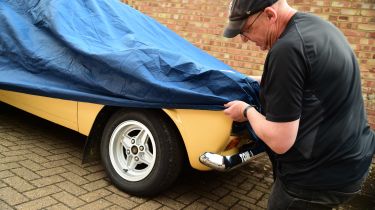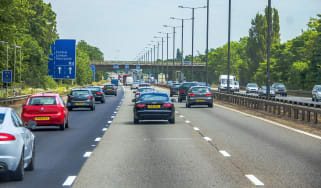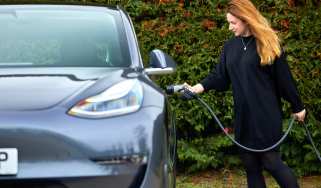What does SORN mean? Statutory Off Road Notification explained
If you’re the registered keeper of a car that’s off the road, you need to apply for a SORN to avoid paying road tax. But what does SORN mean?

If you plan to keep your car off the public road for an extended period of time, you’ll want to apply for a SORN, which stands for Statutory Off Road Notice.
In the UK, all drivers must pay Vehicle Excise Duty – more commonly known as road tax – if they drive or park a car on public roads. The DVLA sends every driver a reminder before their road tax is due, but if they don’t pay, they run the risk of receiving a hefty fine. If you’re not going to be driving or parking on the public road, then you don’t need to pay road tax, but you will need to let the DVLA know so you're not fined by mistake.
 Best way to sell a car: the complete guide
Best way to sell a car: the complete guide
But why would you want to register your vehicle as SORN and stop using it on the public road? Some scenarios include when your car is undergoing extensive repairs or restorations, or if you’re planning to be out of the country for a long period of time. If you own a classic car or convertible that you only use during summer, you may SORN it over winter, although some classic cars are eligible for ‘Historic’ status and are exempt from VED entirely.
You’re not legally required to SORN your vehicle if it’s kept off the public road, but you will have to continue to pay road tax instead – you must do one or the other.
Every car owner planning to take their car off the road must complete a SORN to inform the DVLA that the car will not be used. When it comes time to drive it again, it will need to be taxed, insured and have a valid MoT. You’re only permitted to drive a car without an MoT or road tax if you’re driving directly to an MoT test centre for a pre-booked test, which you may have to prove if questioned.
How do I SORN a vehicle?
To register your car as SORN, it is easiest to visit the following Government website: https://www.gov.uk/make-a-sorn. You’ll need either the 11-digit reference number from its V5C (logbook) or the 16-digit reference code from your road-tax renewal reminder. Simply follow the online instructions, inputting your vehicle’s registration number, make and model where required. You will also need to provide a start date for the SORN to apply from.
Alternatively, you can speak to the DVLA on 0300 123 4321 or send a V890 application form to: DVLA, Swansea, SA99 1AR.
No matter which method you choose, the DVLA will refund any road tax overpayment to you.
How long is SORN valid?
A SORN declaration lasts indefinitely, so it will not expire until you inform the DVLA that you would like to return the vehicle to the road and pay road tax. You no longer have to renew a SORN annually as per the old system.
Of course, notifying them that you’ve sold the car or scrapped it will no longer make you liable for the SORN notice or VED.
Like road tax, a SORN cannot be transferred from one owner to another. Therefore, if you buy a car that’s the subject of a SORN, you have to apply to the DVLA to have it renewed. Alternatively, you can pay road tax for the vehicle and use it on the public road.
As long as they adhere to a few special conditions, vehicle testers and motor traders don’t have to apply for a SORN.
Do I need SORN car insurance?
No, if your car is kept on private land and SORN, you do not legally need car insurance. It’s also not normally possible to insure a car without road tax, which is usually the case for SORN vehicles. However, some specialist insurance providers can issue SORN vehicles with policies designed to cover the owners of laid-up cars (particularly classic models) in the event of theft or accidental damage while on private land.
Frequently Asked Questions
UK car tax made simple...
Recommended

Company car tax 2025: benefit-in-kind (BiK) rates explained
Most Popular
Tips & advice

Car dashboard warning lights: what does each symbol mean?

Electric car charging stations: public networks, charger types, apps and maps









